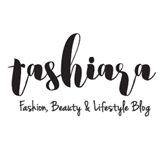Here’s how to prevent hair fall in winter: A 3-Step guide

Dashing through the snow with dry and damaged hair? With skin turning redder and hair turning thinner, we proudly welcome Winter. The last quarter of the year brings in the best time of the year but also the most frigid weather of the year. Many look for ways to preserve skin and prevent hair fall in winter. Whether you’re Team Summer or Team Winter, we are all in consensus that walking in winter feels like an ice pack on the face.
Far from the inflammation-inducing summer, winter is soothing and regenerative for the body. It calms down aggravated inflammatory patches, and this time is deeply healing for the skin as well. With pores shrinking in size, dirt and pollutants do not get easy entry into the skin, and most people with acne-prone skin report skin redness calming down, and sebum staying in control. Read here how protect hair from pollution
But what does winter hold for the hair? Well, like skin, the scalp is also declining in oil production, and over that, the dry air is drawing moisture from the hair strands. Resultantly, the hair turns brittle and thin, and eventually, they fall off. Let’s look into the activities that are damaging our hair in Winter.
What makes hair fall worse in Winter?
With dry hair sucking out the moisture from your hair, the hydrogen bonds in your hair become weak which makes your hair brittle and thin, and results in breakage. So before we look into how to prevent hair fall in winter, we must understand what makes it worse.
Tight Winter Caps and Scarves
With winter and free radical damage already doing the job well, tight woolen caps and prickly scarves can create friction in the hair and scalp, which can worsen your hair fall.
Look for thrift scarves made of silk, blended wool or any smoother fabric to wrap around your head. Headgear must feel warm but without damaging your hair.
Hot Water Showers
Before diving into tips and tricks to salvage winter hair, one thing you need to stop doing to prevent hair fall in winter is taking hot water showers.
Hot water strips your body and scalp of all moisture and is so damaging to the hair follicle. Prolonged exposure to hot water could even weaken your hair follicle and uproot it, adding to the hair fall.
What all to begin to prevent hair fall in winter?
Our advice for you to prevent hair fall in winter is categorized into three ways -
- Activities to begin to prevent hair fall
- Home DIYs to prevent hair fall
- Foods to Begin to prevent hair fall in winter
Activities to begin to prevent hair fall
Silk Scarves + Blended wool for covering your head
Smooth fabrics like Silk and blended wool decrease friction in the scalp which is common from harsher wool.
Lower the temperature of your showers
Hot showers strip your scalp of its natural moisture barrier. Colder or lukewarm water allows for moisture to stay intact and hair follicles do not change their thickness which could lead to thinner hair.
Prevent Heat Styling
Heat with that intensity will damage the protective layer of the hair strand and will add to the damage of the weather. Much is not preserved with heat protectants if the hair is under prolonged exposure to heat styling.
Don't go out with wet hair
Wet hair + cold air are not only an invitation for serious winter sickness, but they also lead to dried-out and undernourished hair. Wet hair is more prone to breakage and to add to that, your hair will also be very dry, extremely frizzy and brittle when you head out. Cover the hair with a scarf when you go out with wet hair.
Deep condition your hair with each hair wash
Deep conditioning will be a huge game changer and will be one sure-shot way to carry moisture in your hair even when you’re out in winter, with several pollutants working against you. Deep conditioning will coat the hair strand in a protective layer and prevent the atmosphere to intervene with your scalp’s and hair’s moisture barrier.
Satthwa’s Biotin and Collagen shampoo is a boost of keratin to the hair follicles. This not only moisturizes the hair strand thoroughly it also helps to prevent hair fall in winter among people who are already biotin deficient.
Hair Masks to try to lock in moisture for longer
Some fun DIYs to try over the holidays are -
Mashed Banana + Egg + Vitamin E

Photo by alleksana from Pexels
Why Try It? Banana is rich in Vitamin B6, Magnesium, Potassium and Vitamin C too. Eggs add peptides to the hair. These nutrients will condition your hair and will deeply repair all the damage the hair strands have already done while softening them.
How to make it? Boil a banana with its peel. Mash the banana entirely, so that chunks do not get stuck to your hair. Add a whole egg to the mashed bananas. Beat the egg well into the paste. When it is blended, empty 2-3 Vitamin E capsules to the paste.
How to apply it? Part your hair in sections and apply it from the roots to the tip of the hair. Put on a shower cap and let the mask stay for an hour. Rinse the mask with cold water and shampoo. Your hair will be conditioned and radiant for days!
Yoghurt

Photo by Cats Coming from Pexels
A culturally relevant, grandma-trusted hair mask that you must have tried growing up is the Yoghurt (Dahi) Hair Mask.
Just apply one cup worth of roots to hair strands. Keep it on for an hour and a half, and clean out your hair with shampoo and conditioner.
The lactic acid from the yoghurt is said to have an anti-microbial effect that eliminates damage from environmental and seasonal changes. It also visibly softens hair and deep cleans the scalp.
Jojoba Oil + Fenugreek Powder + Aloe Vera Gel

Photo by Monica Escalera from Pexels
Why Try It? Flavonoids and saponins from fenugreek have an anti-microbial effect on the hair and scalp and are rich in iron and protein. Aloe Vera gel will be a nourishing agent in this process and its antioxidants will calm down inflammation in the scalp. Jojoba Oil will be a mixer for all these potent ingredients.
How to Make it? Take 2 Tablespoons of fenugreek powder, and add 1 tablespoon of Aloe Vera gel to it. Combine the whole mixture with a carrier oil, like jojoba oil, to get the most out of this hair mask.
How to Apply it? Apply the mask from the roots to the hair strands, and let it stay for an hour. Cleanse the mask off with shampoo and a conditioner. This will be a great weekend refresher for your hair and replenish the scalp of all lost moisture.
Here are a few more DIY Hair Masks to try for your hair this winter. Try this Kalonji + Yogurt Hair Mask and this Castor + Rice Water Hair Mask.
What foods to eat to prevent hair fall in winter?
Nutrients you need to add to your diet to prevent hair fall in winter are -
-
Protein: Protein breaks down into amino acids to build keratin in your body that makes up your hair, nails and skin. A protein-rich diet for hair should include lean meat ( low-fat meat) like chicken in boiled and sautéed form. Paneer, mozzarella (in moderation), tofu, quinoa, and fish (like tuna and tilapia) are all great foods to begin to strengthen the keratin in your hair.
-
Biotin: Biotin (Vitamin B7) is abundant in a diverse diet, so not many people suffer from biotin deficiency. However, research has indicated that people with biotin deficiency suffer hair loss. Overnight-soaked nuts like almonds, walnuts and peanuts are a great source of biotin and are winter staples too. Cauliflowers, bananas, mushrooms, and egg yolk are all Biotin-abundant eats to begin today.
-
Vitamins A/B/C: Vitamin A supports hair renewability. Vitamin B keeps the hair replenished, nourished and shiny. Vitamin C prevents free radical damage on the scalp and suppresses inflammation. Goods that can get you here are yellow, red and green (leafy) vegetables, such as spinach, carrots, sweet potatoes and red peppers. Broccoli, chickpeas, brussels sprouts, kidney beans. citrus fruit, such as oranges and orange juice, peppers, strawberries, and blackcurrants.
-
Iron: Iron content in your bloodstream can enhance blood circulation to your scalp which will allow the foods you eat to be better absorbed by the body. Iron deficiencies can lead to auto-immune diseases that can hair loss as a symptom. Thus, iron is a holistic health nutrient. Foods rich in iron are lentils, beans, oats, sesame seeds, tofu, pumpkin seeds, and oysters.
- Zinc: Zinc deficiency can lead to hair loss and zinc is necessary for the body to produce newer cells. Zinc has to be taken in moderation though. The daily requirement for adult men is 11 g and in adult women is 8g. This moderation must be maintained because excess zinc can also lead to hair loss. Zinc rich diet would include - Seafood such as prawns, crabs, and oysters. Red meat and poultry, pumpkin seeds, chickpeas, cashews, and almonds also provide Zinc.
These tips are not just preventative in nature, but they are healing as well, to the damage that your scalp and hair have already suffered. These hair care tips suggested will have an emollient quality on the scalp. Thus they work to lock in moisture and prevent pollutants, dirt and harmful allergens that worsen hair damage. Incorporate recommended foods in your diet and hair quality is bound to take a high stride.








